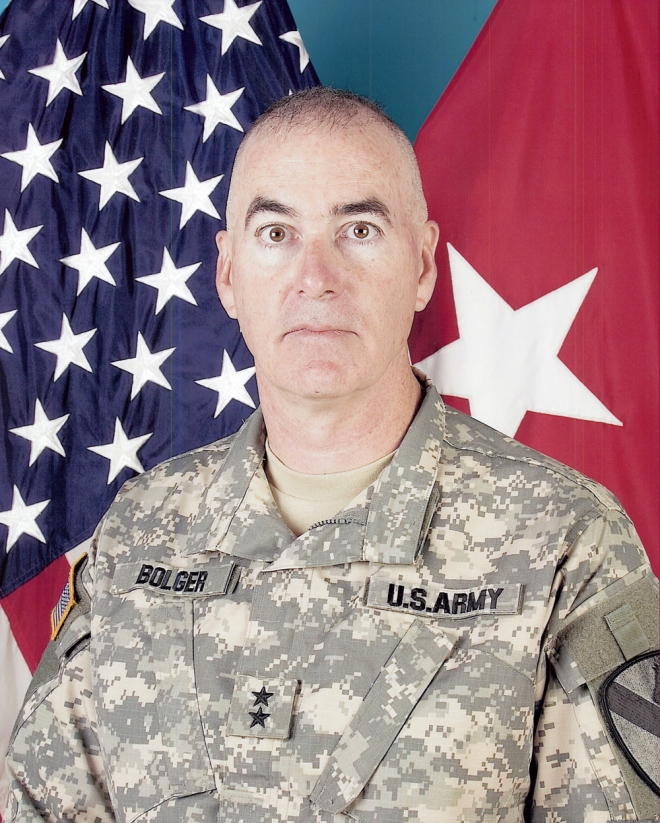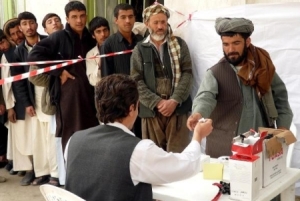I read a large amount of material for which I have neither the time nor the inclination to write full-length reviews. However, that does not preclude me from sketching brief thoughts on a topic, such as an abstract, synopsis, memorable quote, etc. I will pretentiously refer to these posts as “epitomes” and categorize them as such. This post is the first of that content stream.
***
About 15 years ago I read a book by then-Colonel Daniel Bolger titled Death Ground. The subject of the book was America’s infantry forces, their current status and possible futures, circa 1999. It was interesting enough, but it reeked of elitist chest-thumping as Bolger extolled the virtues of active duty soldiers and marines and disparaged the National Guard. The complexities of modern warfare, he argued, had made citizen-soldiers anachronisms.
Fifteen years, two wars and three stars later, Lt. Gen. Daniel Bolger’s latest book, Why We Lost, open with a very different tone:
I am a United States Army general, and I lost the Global War on Terrorism. It’s like Alcoholics Anonymous; step one is admitting you have a problem. Well, I have a problem. So do my peers. And thanks to our problem, now all of America has a problem, to wit: two lost campaigns and a war gone awry.
The book itself is a narrative history of the wars in Iraq and Afghanistan, structured around vignettes of particular battles or key events that illustrate the course of the campaign. Bolger commanded a division in Baghdad in 2009-10 and advisory operations in both Iraq and Afghanistan, but he never had theater-level command. He was senior enough that he was exposed to the inner machinations of both wars, but he has no personal “legacy” to defend with optimistic spin and revisionism. His account in unvarnished and credible. And he pulls no punches:
Our primary failing in the war involved generalship. If you prefer the war-college lexicon, we – guys like me – demonstrated poor strategic and operational leadership. For soldiers, strategy and operational art translate to “the big picture” (your goal) and “the plan” (how you get there). We got both wrong, the latter more than the former. Some might blame the elected and appointed civilian leaders. There’s enough fault to go around, and in this telling, the suits will get their share. But I know better, and so the rest of the generals. We have been trained and educated all our lives on how to fight and win. This was our war to lose, and we did.
Bolger’s central argument is that America failed at the most basic level of strategy by ignoring Sun Tzu’s dictum to “know the enemy, know thyself.” After 9/11, the U.S. had a choice on the nature of the upcoming campaign: a narrowly-defined effort against a small number of targets amenable to kinetic action, or a broad set of maximalist objectives with the ultimate goal of somehow eradicating terrorism. The U.S. selected the latter option, thus committing the U.S. military – trained and equipped for high-intensity regular warfare – into two long-term counterinsurgencies, in fractured Islamic societies, with no clear objectives or understanding of the enemy.
Master Sun put it simply: “Know the enemy and know yourself; in a hundred battles you will never be in peril.” We failed on both counts. I know I sure did. As generals, we did not know our enemy – never pinned him down, never focused our efforts, and got all too good at making new opponents before we’d handled the old ones…
Time after time, despite the fact that I and my fellow generals saw it wasn’t working, we failed to reconsider our basic assumptions. We failed to question our flawed understanding of our foe or ourselves. We simply asked for more time. Given enough months, then years, then decades – always just a few more, please – we trusted that our great men and women would pull it out. In the end, all the courage and skill in the world could not overcome ignorance and arrogance. As a general, I got it wrong. And I did so in the company of my peers.
This criticism of American strategy is very common, but not from the pen of a retired general who took part in the war, making it all the more trenchant.
However, this line of analysis is a thin thread through the entirety of the book, which is overwhelmingly a narrative history. Isolated from the vignettes, Bolger’s explanation of “why we lost” could fit in a lengthy newspaper op-ed. My impression is that he originally intended the book to be a straight history and that the publisher recommended the title to give it pertinence in light of the deteriorating situation in both Iraq and Afghanistan. Bolger obliged by bracketing the work with elaboration on a theme that otherwise exists thinly in the body of the text.
Still, Bolger is a gifted writer, and his book is worth reading as one of the first narrative histories of the “Global War on Terror.”

“Hi. My name’s Daniel, and I have a problem…”



